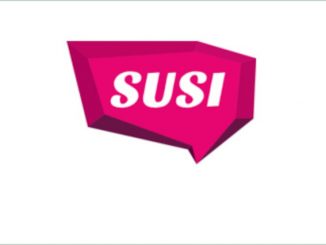
[dropcap]More[/dropcap] third level students will be encouraged to learn foreign languages and go on Erasmus programmes in a new government plan.
The 2018 action plan launched by the Taoiseach hopes to build closer links with Europe post-Brexit.
Students with native English and a working EU language will be at a greater advantage foe employment when the UK departs from the EU.
“Most people in Ireland can only master one language,” said Taoiseach Leo Varadkar at the launch of the action plan.
Encouraging foreign languages and access to Erasmus placements are positive steps, according to the Taoiseach.
“It’s so different when you go to other countries, such as Germany or Netherlands, where people can very commonly speak two or three languages. I think we’re really losing out in that regard,” Varadkar said.
“To be honest post-brexit we’re really not sure how things are going to pan out,”Anne McEvoy, communications assistant at European Parliament in Ireland told the College View.
“I believe that there will always be a demand in Brussels for English speaking staff. Mother tongue English will certainly be an advantage,” she said.
McEvoy emphasised that there are many avenues of work for students in Brussels with a second language, such as in finance, admin, law, languages and translation.
“It’s not just exclusively for people with languages, there are a lot of opportunities for employment. But it is important to have that second working language as well,” McEvoy said.
She encouraged post graduates to apply for traineeships in the European Institutions, especially the Robert Schuman traineeship.
“It is five months paid and you can apply to work in different areas, like communication, finance, international law. There are also translation traineeships that are seperate,” she said.
“If you’re studying languages you could apply to the translation services in the parliament in Luxembourg and they also offer traineeships,” McEvoy said.
The Taoiseach said that there would be opportunities for Irish young people after the UK leaves the EU.
“One of my big regrets is that I didn’t take that opportunity to study in Paris, Berlin, Madrid or Barcelona,” he said.
“One of the few upsides of Brexit is that British universities will not be part of Erasmus anymore, meaning that more Irish students studying in Manchester or Birmingham will hopefully take the opportunity to study in continental Europe.”
The education action plan also includes a school excellence fund and the introduction of Physical Education to the Leaving Certificate.
Fionnuala Walsh



